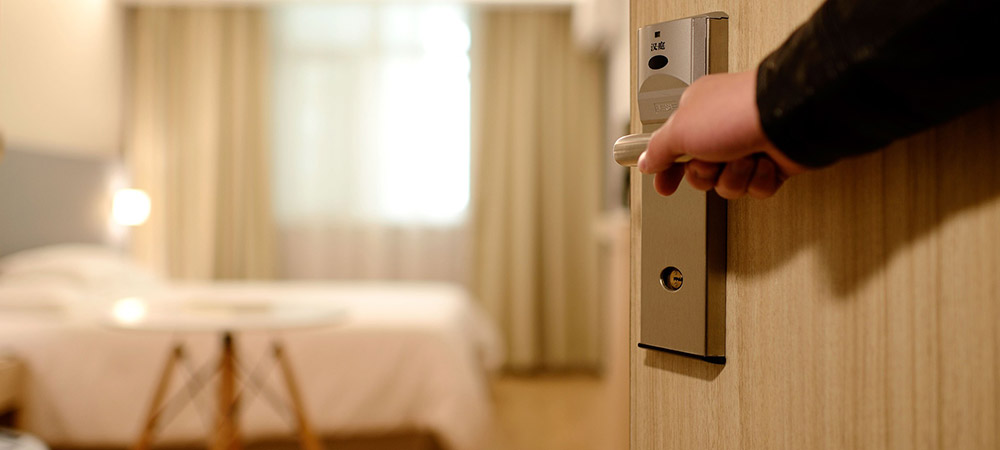How to Choose a Food Allergy Friendly Hotel this Spring Break

There’s no doubt that food allergy parents know their way around Google. After a food allergy diagnosis within a family, online searches are common: Safe restaurants, ingredient lists, “grocery stores near me.” When leaving the comfortable bubble of your hometown, no amount of searching can make you totally comfortable.
A bit of uncertainty will just make you ask more questions and take extra caution, and when it comes to food allergy, that’s a great thing. Emily Melby, RDN at Allergy Associates of La Crosse, makes it a little bit easier to pick a safe hotel for your upcoming travel or spring break destination. She gives insight on how to choose a hotel, what do ask when booking, what you can’t forget to pack, and what to do when you arrive at your hotel.
When choosing
The biggest thing to consider when choosing a hotel is location. Not only should it be close to all the activities you have planned, but close to safe restaurants and grocery stores, and a hospital, too (just in case!)
Apps like Allergy Eats and Spokin can help you research nearby restaurants and find reviews from real people with allergies. Thousands of restaurants have received reviews and input from other travelers with food allergies, which can be some of the most trusted advice. Also, reach out to friends with allergy in their family or online food allergy groups for recommendations. Emily says this personal recommendation often gives an extra level of comfort.
Emily also says, “Knowing which hospital is available and how far away it is from your hotel and activities is important.” Hopefully you won’t have to visit, but just in case, you’ll want to be close by, especially if you won’t have access to a car.
When booking
Informing the hotel of your food allergy ahead of time is key. “I would actually recommend prior to making the reservation, call the hotel, inform them that you have a food allergy that can cause a very severe reaction. You don’t want to do it last minute, so definitely give them a heads up in advance.”
It’s appropriate to ask questions about how they clean the room and if they’re able to guarantee a safe stay. Make sure to get the name of the person that you spoke with in case you have any issues when checking in.
When making a reservation, also be sure to check what amenities are provided, for example, will you have a refrigerator, microwave, or small kitchen for making your own safe foods if needed?
When packing
Grab your sunscreen, pajamas and toothpaste, but don’t forget these essentials, too!
- Medical ID bracelet
- Safe food
- Disinfecting wipes
- Medical release
- Action plan
- MyTealTicket restaurant order form that alerts the staff of your specific food allergies
“Of course, your epinephrine should be with you no matter what if you have it prescribed to you. Make sure it’s not expired,” Emily says. “Think about questions like, how long are you going to be gone? Do you need a couple of them, just in case? Are you able to refill the epinephrine at your destination if needed? Do you have an up-to-date prescription from your physician?”
When you arrive
When you check in, remind the front desk that you have food allergy and that the person you spoke with when making the reservation ensured a safe room. Don’t forget to ask any questions that you need to, whether it’s about the breakfast or room service.
Once in your room, Emily says, “Scan the room for problem food items.” Certain hotels may provide snacks like walnut chocolate chip cookies or chocolates. Make sure to remove any that are unsafe.
“It’s hard to know if the hotel is vacuuming or wiping down every surface in the room. If it’s going to make parents feel better, bring disinfectant wipes to clean. If there’s a microwave and refrigerator, it’s not a bad idea to wipe them down before use,” Emily adds.
That’s a wrap! Do you have additional tips you consider when booking a hotel? Let us know in the comments. If you’re interested in adding an additional measure of safety, consider how allergy drops following the La Crosse Method™ Protocol for food allergy might reduce issues in case of accidental exposure.


